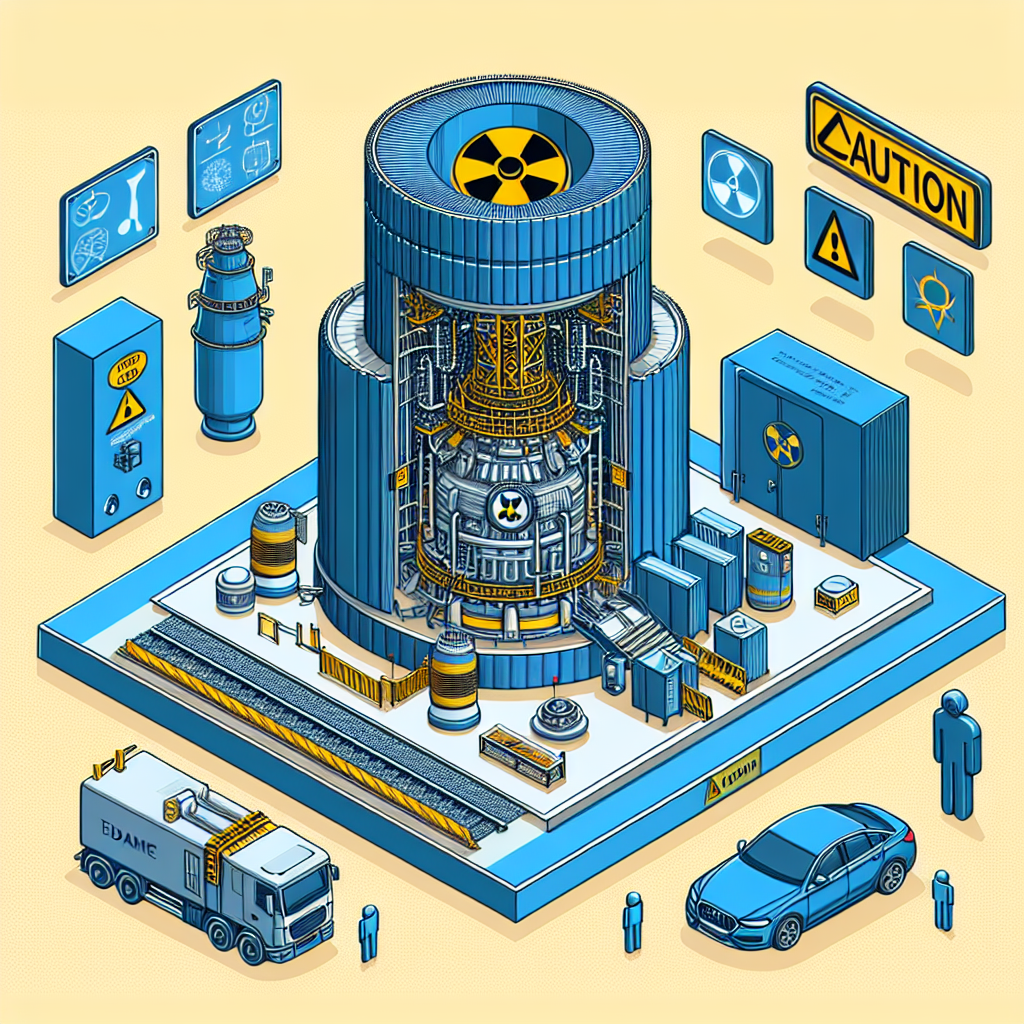IAEA Releases Guidelines for Secure Transport of Nuclear and Radioactive Material
Publication Emphasizes Preventive Measures to Mitigate Theft and Sabotage Risks.

The International Atomic Energy Agency (IAEA) has unveiled a new publication aimed at bolstering the security of nuclear and other radioactive materials during transport. With transport-related incidents accounting for more than 50% of thefts reported to the IAEA’s Incident and Trafficking Database since 1995, the document provides critical guidance for nations to establish and strengthen transport security protocols.
The Importance of Secure Transport
“It is essential that nuclear and other radioactive material is managed securely and properly protected against criminal or intentional unauthorized acts during transport,” said Heather Looney, Head of the Nuclear Security of Materials and Facilities Section in the IAEA’s Division of Nuclear Security.
Transport remains a vulnerable stage in the nuclear material lifecycle due to the inherent challenges of safeguarding shipments across different modes of transport—whether by road, rail, sea, inland waterways, or air. The publication outlines comprehensive measures to mitigate potential threats such as theft or sabotage, underscoring the importance of proactive planning and robust protective mechanisms.
Guidance for Comprehensive Transport Security
The publication targets professionals across a spectrum of roles, including:
Law enforcement agencies
Customs and border control personnel
Intelligence and security agencies
Shippers, carriers, and operators
It provides detailed recommendations for both domestic and international transport, addressing diverse security aspects such as:
Categorization of radioactive materials from a nuclear security perspective.
Protection of the confidentiality of transport routes and operations.
Establishment of a regulatory framework for transport security, including the role of national oversight bodies.
Physical protection measures for shipments, including secure conveyance and escort mechanisms.
Personnel training and qualifications to ensure the preparedness of those involved in transport security.
An Internationally Consistent Approach
The guidelines form part of the IAEA’s Nuclear Security Series and emphasize the need for an internationally standardized approach to transport security. By integrating nuclear safety and security measures, the publication bridges critical gaps, ensuring a holistic framework for safeguarding nuclear and radioactive materials.
The guidance builds upon existing IAEA recommendations, such as those in the Nuclear Security Recommendations on Physical Protection of Nuclear Material and Nuclear Facilities and the Nuclear Security Recommendations on Radioactive Material and Associated Facilities.
Enhanced Collaboration and Preparedness
Key to the publication is its emphasis on coordination among various stakeholders, including transport control centers, law enforcement, and intelligence agencies. It stresses the importance of:
- Real-time communication during transport.
- Establishing secure hubs for shipments.
- Continuous improvement through training and exercises tailored to evolving threats.
Additionally, the document offers actionable insights for shippers and carriers, enabling them to develop tailored transport security systems that align with international best practices.
Next Steps and Accessibility
The IAEA encourages governments and stakeholders to leverage the guidelines to reinforce their nuclear transport security measures. The publication is available free of charge, along with other resources in six languages, through the IAEA's website.
As global nuclear operations expand, this publication serves as a critical tool for ensuring the safe and secure movement of nuclear and radioactive materials, protecting communities and maintaining international security standards.
- READ MORE ON:
- IAEA










